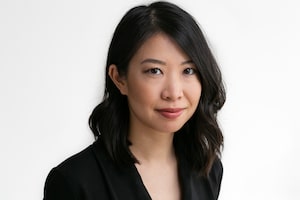Toronto Mayor Rob Ford addresses the crowd at Ford Fest in Toronto on Saturday September 27, 2014. Mr. Ford is working at City Hall between rounds of chemotherapy.Chris Young/The Canadian Press
Toronto Mayor Rob Ford says cancer has been the "worst event" that's ever happened to him, saying that "some nights, I just cry myself to sleep."
Mr. Ford, who has been away from City Hall for the past several weeks while he undergoes treatment for liposarcoma, a rare form of cancer, paid a rare visit to his office Thursday afternoon. There, he spoke with City Hall reporters for the first time about his cancer diagnosis, and his decision to pull out of the mayoral race.
"This is the hardest by far," Mr. Ford said of all the challenges he's dealt with in the past few years – a period of time which includes his admissions of drug and alcohol abuse, having his mayoral authorities stripped away from him, and being the subject of a Toronto Police investigation.
"A lot of the stuff that I've gone through, most of it's been self-inflicted, but when you get hit by cancer, that's not self-inflicted," he said.
The mayor added that the experience has been especially difficult given the fact that his own father died of cancer. "I wasn't in his shoes, but I saw what he went through," Mr. Ford said. "I just told the doctor 'I just don't want to suffer. I really don't want to suffer.'"
The worst part, he said, has been the effect on his family. "It's explaining to my kid what a will is," he said. "Stephanie's 10 and Dougie's seven – they know what's going on at 10 and seven, and it's heartbreaking at times…They say stuff like 'Who's going to tuck me in at night? Who's going to take care of us?' Some nights I just cry myself to sleep."
Mr. Ford, whose voice was hoarse and several times had to stop mid-sentence to gather his thoughts, said he was at his office Thursday in order to get work done. He apologized when this happened, saying "this chemo really does weird things to you."
"I've got letters to sign, I've got to open up every single get-well card," he said, gesturing to the wall covered with cards that had been plastered on his office door. "People have the time to send them to me, I've got the time to read them." He said he'd stayed up until late the night before to help put up campaign signs for the October 27 election.
After the mayor was hospitalized in mid September, he dropped out of the mayoral race, opting instead to run for his former council seat in Etobicoke. His brother, Doug Ford, is now running for mayor in his place. At about the same time that the mayor spoke with reporters at City Hall, Doug was in Etobicoke, unveiling his transit plan at a press conference.
"It's different," Rob said of playing "armchair quarterback" to his brother's campaign from the sidelines. "I'm just trying to give him advice because we all start off – you think it's easy, getting up and debating, but it's a bit of a challenge, because you have so many different issues. You have a lot of your time condensed into 30 seconds or a minute."
At his Etobicoke press conference, Doug unveiled his $9-billion, 32-kilometre subway plan, which is almost identical to the plan unveiled by Rob when he was still running for mayor – with one notable exception.
Whereas Rob's plan placed Sheppard and Finch subways as his first priorities, Doug said that a downtown relief line would instead be his number one priority.
"The relief line downtown, the Yonge relief line, I think is a priority," he said, "right beside the Sheppard line. So we'll be doing the Yonge relief line – I think we have consensus with the councillors.
As with his brother, Doug promised to build the subways at no cost to residents, instead vowing to fund the plan with assistance from other levels of government, as well as a mix of public-private partnerships, sales of assets and air-rights over stations.
 Ann Hui
Ann Hui